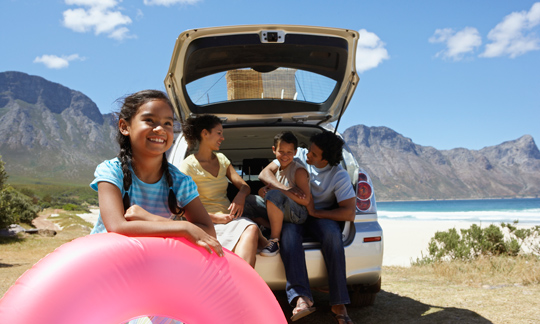News
Back to: Western Cape Government
Keeping Safe: Tips for the Holiday Period
17 December 2013
 The December holiday period is usually associated with family, fun and relaxation. To ensure that your holiday period is a happy and safe one, take a look at the following safety guidelines.
The December holiday period is usually associated with family, fun and relaxation. To ensure that your holiday period is a happy and safe one, take a look at the following safety guidelines.
Keeping Safe in the Street
- Plan your route beforehand by making use of a map or by getting clear directions.
- Avoid being a target for thieves by not wearing expensive jewellery.
- Never display your valuables eg your phone, wallet or camera.
- Only carry the amount of money you will need and be alert at any ATM terminals.
- Avoid walking alone or in quiet streets in areas you are unfamiliar with, particularly at night.
- Always remain vigilant and avoid suspicious-looking persons.
Public Transport
- Plan your journey. This includes the modes of transport you intend on using. Familiarise yourself with public transport routes and operating times.
- Ask for directions before you set out on your journey.
- Ensure that you know the distance, direction and time it takes to get to your final destination.
- Be alert at all times while travelling on public transport. Keep valuable items out of sight.
- Use only recommended and reputable private transport services.
- Be particularly alert at any transport interchanges.
Sightseeing, Concerts and Other Major Events
- Familiarise yourself with emergency measures, such as your nearest exit sign, fire extinguishers and stairs in case of fire emergencies.
- Take care of your valuables.
- Where possible, avoid being alone.
- Plan travel arrangements, particularly when travelling after hours.
- Deal only with authorised agents when you exchange money.
On the Road

- Familiarise yourself with the traffic rules of the Western Cape.
- Plan your route and consider fuel consumption in advance.
- Keep car doors locked and windows closed at all times.
- Lock valuable items in the boot/trunk.
- Never pick up strangers.
- Stop only at designated viewing or picnic sites.
- Check that your car is in a roadworthy condition before going on long road trips.
- Don't use your cellphone when driving. Your calls and messages can be returned once you have arrived safely at your destination.
- Most importantly, never drink and drive. Driving under the influence of alcohol and/or other narcotics drastically reduces driving ability and poses a threat to yourself, other motorists, as well as pedestrians.
Outdoors
- Plan your routes and activities for the day. Obtain information about the outdoor area you will be visiting, including information on wild animals (if any) which may be in the area. Always inform a family member or friend of where you will be going, as well as your expected time of return.
- Check weather conditions.
- When visiting the beach, get information on the tide times and check the beach for warning flags.
- When going on hikes, carry protective clothing, wear suitable shoes, make use of maps and carry water. If possible, take a compact hiking first aid kit for minor injuries.
Your personal safety and the safety of those around you should never be taken for granted. Never engage in dangerous activities, pranks or games which could lead to the injury of yourself and/or someone else.


